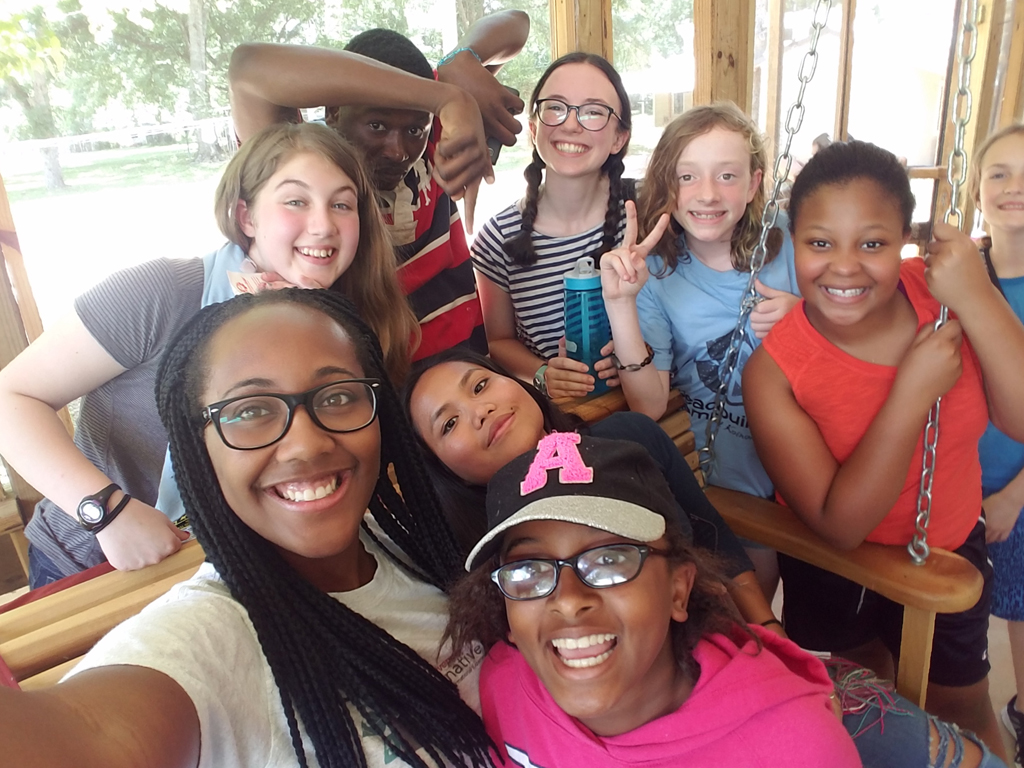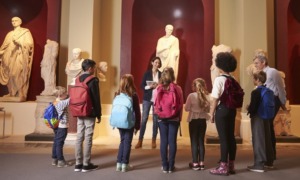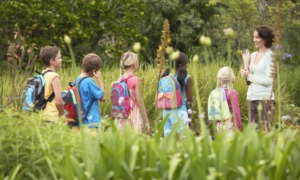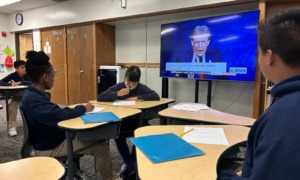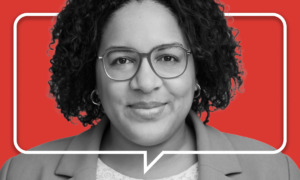On a hot July day last year, a group of middle-school kids at a summer camp in southwest Georgia grappled with some questions:
Is hunting for sport OK or not OK? How about buying bottled water? Serving in the military? Using recreational drugs?
Campers offered their opinions and had a lively discussion.
The goal of the activity was to illuminate Article 18 of the Universal Declaration of Human Rights: “Everyone has the right to freedom of thought, conscience and religion.”
“We have the kids line up on a spectrum from OK to not OK in relation to the different issues,” said Marilyn McGinnis, co-founder and curriculum director of the camp.
“What we go for is openness and discussion and finding how to be in a relationship even when we disagree,” she said.
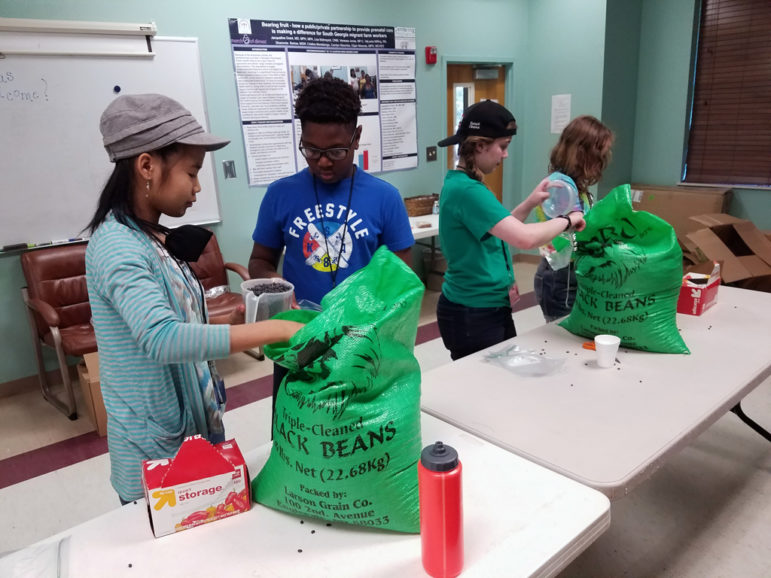
Middle-school kids at Peacebuilders summer camp near Americus, Georgia, package bulk dried beans for a food pantry serving migrant farmworkers in rural South Georgia. Peacebuilders Camp exposes kids to questions of human rights and justice.
Few summer camps — except perhaps Bible camps — are focused on a text.
Even more unusually, Peacebuilders camp is centered around the Universal Declaration of Human Rights.
Kids ages 11 to 14 spend a week at Koinonia Farm near Americus, Georgia, where each day’s activity is built around one of the rights in the Universal Declaration. This summer, three camp sessions are offered beginning July 3. Campers also swim, play basketball, go on hayrides and sit around campfires.
They visit a local health clinic for migrant farm workers on the day they
discuss Article 25, which states that food and medical care are universal rights. They’ll host a Chicago glassblowing artist this summer when they discuss Article 27, the right to participate in the cultural life of the community.
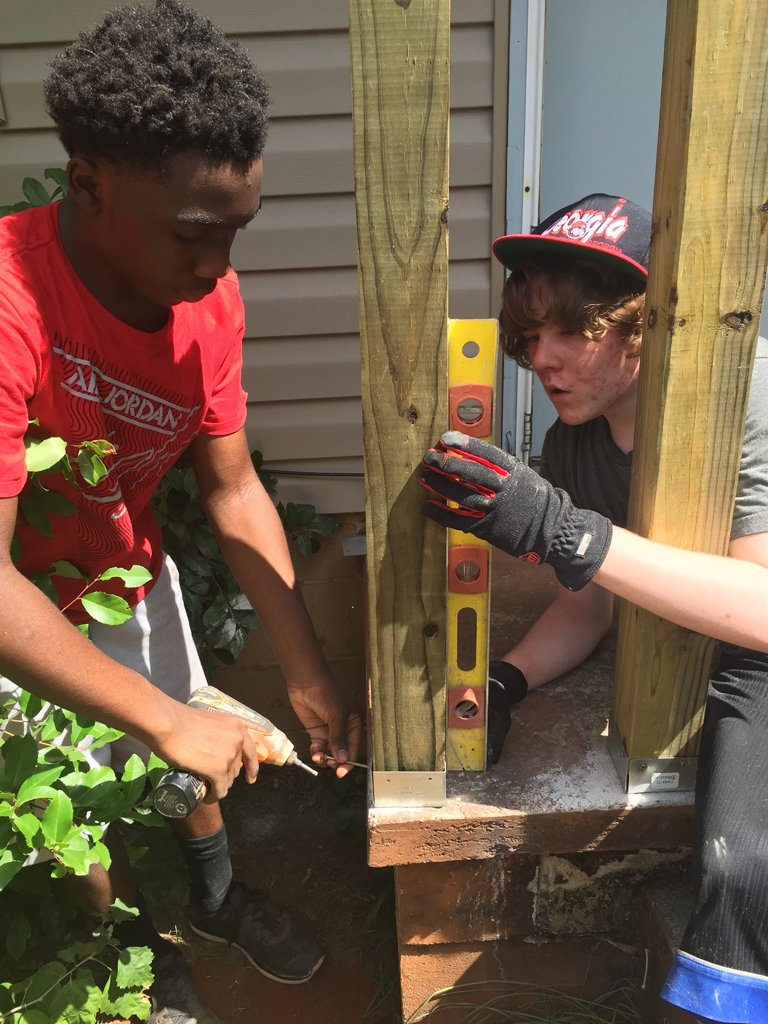
Two campers do a work project with the Fuller Center for Housing, a nonprofit that seeks to eradicate poverty housing by building and rehabilitating homes for people in need.
“We introduce the right we’re talking about and discuss why it’s important,”
McGinnis said. “We also discuss who is at risk of being left out,” she said.
“The overt curriculum is about human rights,” said Jonah McDonald, co-founder and administrative director. But the deeper curriculum is about how to meet, understand and get along with people from different backgrounds, he said.
McDonald recalled a day devoted to Article 24, the right to rest and leisure, when a camper suddenly said: “I don’t think my mom has access to that right.” Her mother worked long shifts and came home very tired. The girl decided she would make dinner one night each week for her mother.
She had made the connection between an internationally declared human right and her own family life, McDonald said.
The idea of the camp took shape after McGinnis, an Atlanta schoolteacher, took a group of students in 2009 to learn about civil rights history at Koinonia Farm.
The farm is an intentional community created in rural Georgia in 1942 that has a history of defending civil rights. It’s located about 10 miles from Plains, home of former President Jimmy Carter — and of the nonprofit Habitat for Humanity.
The trip with her students was so successful that McGinnis teamed up with fellow teacher McDonald to organize the summer camp in 2011.
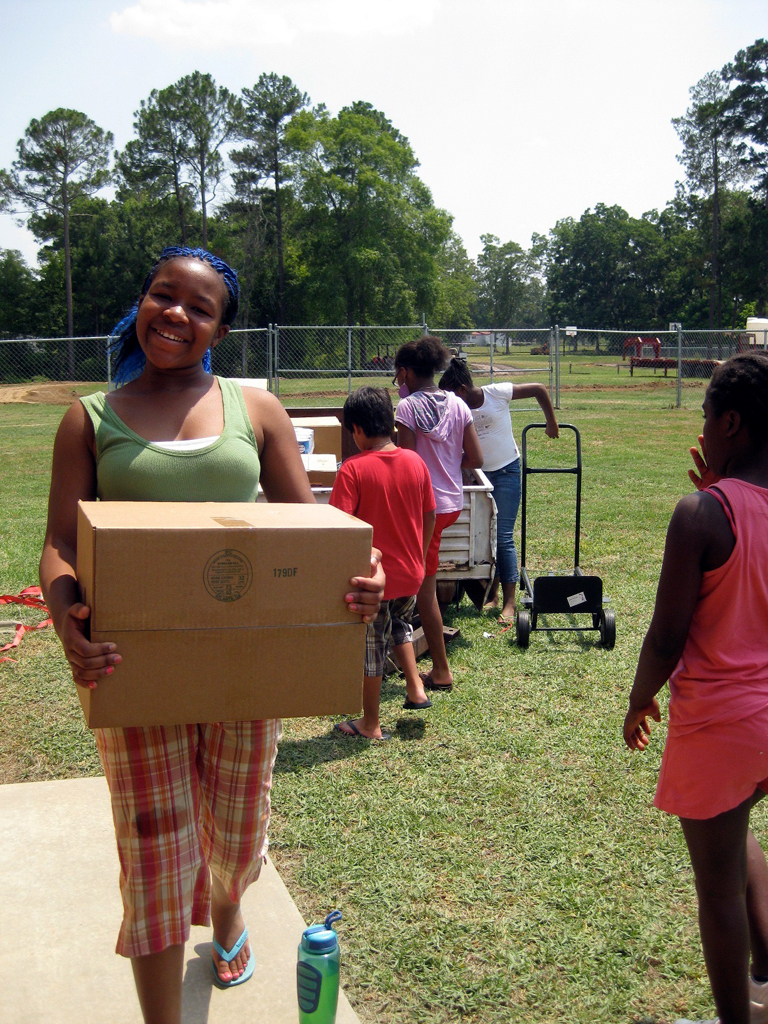
A camper carries boxes to the food pantry and health clinic in Ellenton, Georgia, that serves migrant farm workers.
About 20 kids attend the overnight camp each weekly session. Camp tuition is determined on a sliding scale, allowing kids to come regardless of income. A number of campers are from families who came to the United States as refugees.
On July 4 this year, campers will discuss Article 15, the right to a nationality. A camp counselor, who is undocumented but is protected under the Deferred Action for Childhood Arrivals (DACA) policy, will explain what that means to him and to other people who have lived without legal residency status.
The kids will also play Ultimate Frisbee, led by visitors from Ultimate Peace, a nonprofit that gives Palestinian and Israeli youth the chance to get to know each other by playing the game.
FOR MORE INFORMATION AND FREE RESOURCES ON SUMMER LEARNING PROGRAMS IN OST, GO TO THE YOUTH TODAY OST HUB.


